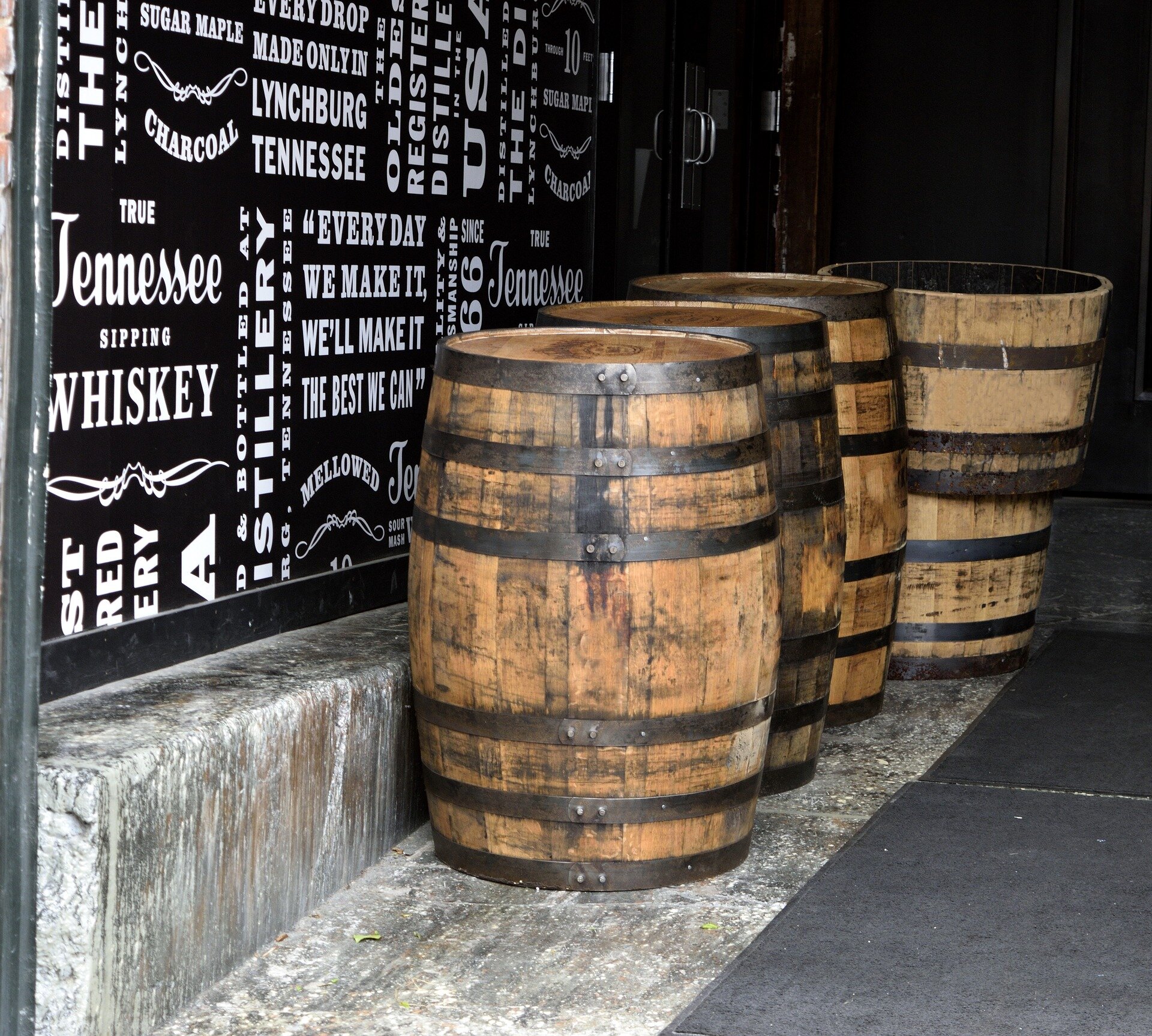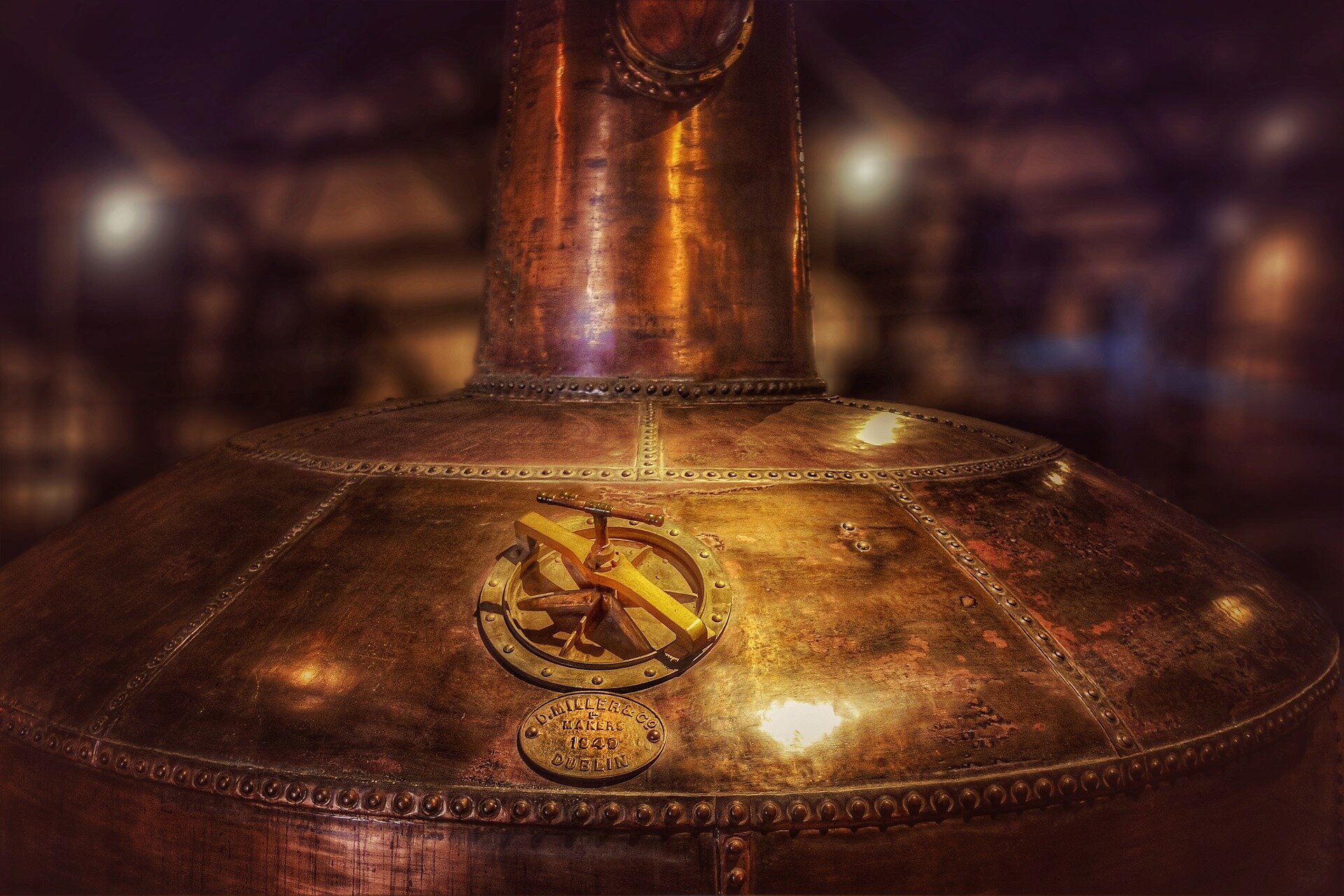Distilled– First Impressions
It’s fair to say that humans enjoy alcohol—at least the majority who decide to take part in such beverages. But even those who don’t for religious or personal reasons can appreciate the craft that goes into the production of the drinks. In Distilled, players act as novice distillery owners, recently bequeathed with the family business, and must learn to produce the finest spirits and gain reputation in the industry.
Distilled is the first tabletop board game from designer David Beck. The idea for such a game came to him during a 2019 visit to Scotland filled with distillery tours and whiskey sampling. A spark kept him up all night putting the core gameplay mechanics to paper and planning out what is now Distilled.
So relax. Pour yourself a dram. Aerate a good bottle of wine. Or maybe relive your youth and take a shot while I explore what makes this game go down so smooth.
What It Does
The title of master distiller does not come to those who are just lucky, though.
Over the seven turns of the game, players will distill together sugars, water, yeast, and alcohol to concoct the spirits of choice to earn money and Spirit Points. Players must visit the market and co-op to procure the all-important ingredients and vessels for distilling and bottling as well as infrastructure or employee upgrades to the distillery.
How It Does It
I have a hard time placing Distilled into any particular family of game mechanics. Aesthetically, it looks to be an amalgamation of deck-, tableau-, and engine-building games. After further thought, I do not believe that Distilled functions as a deck- or tableau-builder but it is a very light implementation of engine-building.
In Distilled, turns are divided into the market and distilling phased—the former prompting players to buy ingredients, items, or distillery upgrades from a common market while the latter enables players to use those purchases when brewing and then bottling or aging spirits.
The catch of the distilling phase is that, after shuffling, the top and bottom cards of your ingredient deck for the round are sent back to your hand to simulate deadly washback produced at the beginning and end of batches.
This distilling phase mechanic introduces an element of push-your-luck. Players can mitigate the effects of a bad draw off their deck by adding more essential ingredients and ensure they will make the correct spirit at the end of the distilling phase. Nothing is quite like the sigh of relief that players feel when they don’t pull out the one grain they distilled and can make shōchū instead of moonshine.
Players choose to bottle their spirits immediately or age them—adding flavor cards to the casks during the subsequent aging phase each round. Bottled spirits are sold and coins are received to start the whole process over again next round.
Now, as for the question of what category this game should be placed in…
I have to rule out tableau-building because the standard market actions are not upgraded or expanded upon in any way as new cards are bought and the game progresses in rounds.
And since each player’s deck is reset at the end of every round’s distilling phase, I don’t feel comfortable calling this a deck-builder because of the short lifespan of the physical decks.
But the game does have slightly more claim to engine-building because of upgrades and asymmetrical bonuses from distillery identities, but actions never really chain into each other or become more useful as the game progresses.
It’s a tricky one to define, which is not necessarily a bad thing.
Why You Might Like It
The theme and art are gorgeous. If you are a board game and alcohol aficionado, the theme alone might sell you. Better yet, Distilled is a great entry-level game for those non-gamers who could be persuaded into a game night solely because of the game’s central conceit.
While Distilled’s winners will be the more economically savvy—those who can calculate the path of play with the maximum return on investment of every move of the game from coin to Spirit Point conversion—the game cultivates a non-alienating experience for any strategy or player breed.
Want to age your spirits as long as possible? Want to spend all game making nothing but your personal favorite spirit? Go right ahead! The game lets you have fun no matter what you try to do.
Why You Might Not
Because the engine-building in this game is very sparse, if present at all, the seven turns are mostly uniform. Your actions do not become better or more valuable, you just buy more from the market because of your deepening pockets and access to coin as the game progresses.
This is a medium-weight title with only one resource to manage. If you want more complexity in the game than evaluating the expense of coins while creating different spirits, then you may be left wanting more during the distilling process and overall gameplay experience.
The asymmetry in distillery identities (the people who you play and who own these upstart distilleries) is slightly superficial as most boil down to gaining roughly a coin and a half per round during one phase or another—if not just a direct deposit into a player’s reserves.
Final Thoughts
Much like the spirits players distill in this game, you will get out what you put in. The game tempers itself to the level of effort, seriousness, or lightheartedness players exert. Because of minimal player interaction—primarily through the occasional fight over resources in the shared market—players can do pretty much anything they want in a solo-esque fashion common in eurogames.
While guided by the player-specific goal cards and shared goals all players are racing toward, I found myself just enjoying going through the motions of planning out how I was going to make the current round’s spirit. This game breeds moments when you forget about the scoring track and just want to make some brandy for the round—not because it is potentially the perfect maximization in an exacting coin-to-Spirit-Point ratio, but because you just want to enjoy yourself making brandy.
It may totally just be the theme that sucks me in—and this experience will diverge for someone who isn’t interested in alcohol or the production process behind it—but this game really made me enjoy performing relatively mundane tasks like purchasing fruit and scoring a nice wooden barrel…
This may well be the game that brings certain non-gamers into the hobby or at least allows them to enjoy a game night when they otherwise wouldn’t. The game is fantastic for newer players while those with more experience may enjoy the mixture of economic maximization and thematic draping. For everyone, I recommend at least a play or two. This is not a game that should be overlooked during its Kickstarter—which is currently scheduled for July 6th later this year.
If you want to check out Distilled, you can visit the Distilled website or read what the community thinks on BoardGameGeek.
What sounds most promising about Distilled? Have you played any other indie designs?
Let us know in the comments and give a recommendation for other games of which to share our first impressions.






